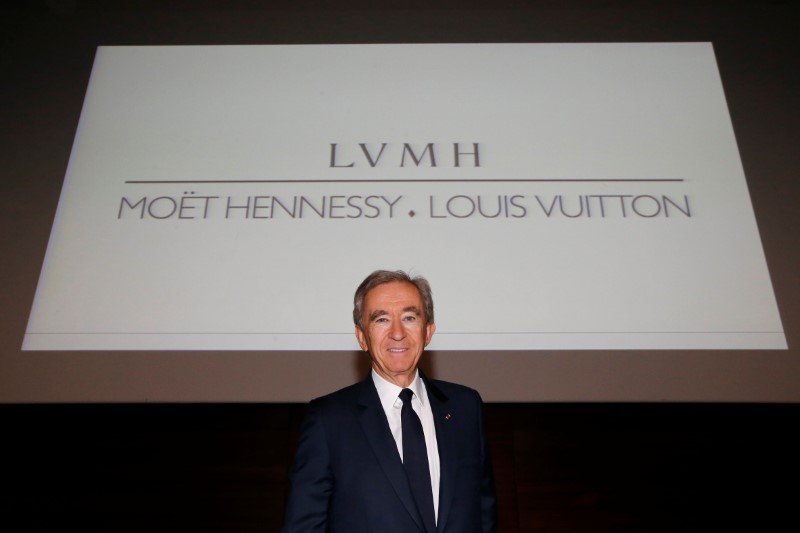By Sarah White
PARIS (Reuters) - LVMH (PA:LVMH), the world's largest luxury group, will invest more to improve its environmental credentials as fashion businesses seek to reassure shoppers who are increasingly drawn to eco-friendly brands, it said on Wednesday.
In an industry not known for half-measures and that has drawn flak for cruel or wasteful practices, including some companies embroiled in animal abuse scandals, many luxury houses are trying to improve their "green" image.
Beyond tightening standards on the way some materials are sourced, including the leather used for handbags, companies are also running the rule over everything from packaging to the type of energy-saving lightbulbs used in their stores.
LVMH, which owns fashion house Louis Vuitton and champagne maker Moet & Chandon among its 70 businesses, said its companies would be contributing 30 euros to an in-house carbon fund for every tonne of CO2 emissions they generate from 2018, up from 15 euros previously.
Those funds are then earmarked for insulating buildings and other projects.
LVMH has rarely publicized its sustainability targets, in contrast with Paris-based rival Kering (PA:PRTP). However, it said that it is working on other steps such as raising the share of leather goods sourced from strictly monitored tanneries to 70 percent by 2020.
"Our clients are more and more sensitive to the fact the products they consume should respect the environment," its billionaire Chairman Bernard Arnault told journalists.
"Our partners and clients are very attached to this aspect and it seemed logical to make a shift and talk about it a little more."
Consumers have become more sensitive to how clothes and accessories are made, with some fast-fashion companies in particular coming under fire for exploitative working conditions or the use of fabrics that encourage pollution.
At the luxury end of the scale, companies have been careful to protect their standards and image, even if they still sometimes parade models in fur coats.
France's Hermes was caught in a storm two years ago when a crocodile farm used to supply leather for one of its best-selling handbags was accused of cruel slaughter practices.
"What motivates these luxury groups to be more and more vigilant is that they run a reputational risk," said Olivier Abtan of Boston Consulting Group.
Kering, which owns Gucci and Alexander McQueen, has long promoted its eco-friendly credentials and since 2015 has broken out accounts for the environmental impact of its business.

It also works with Stella McCartney, a brand well known for shunning leather or fur in its designs.